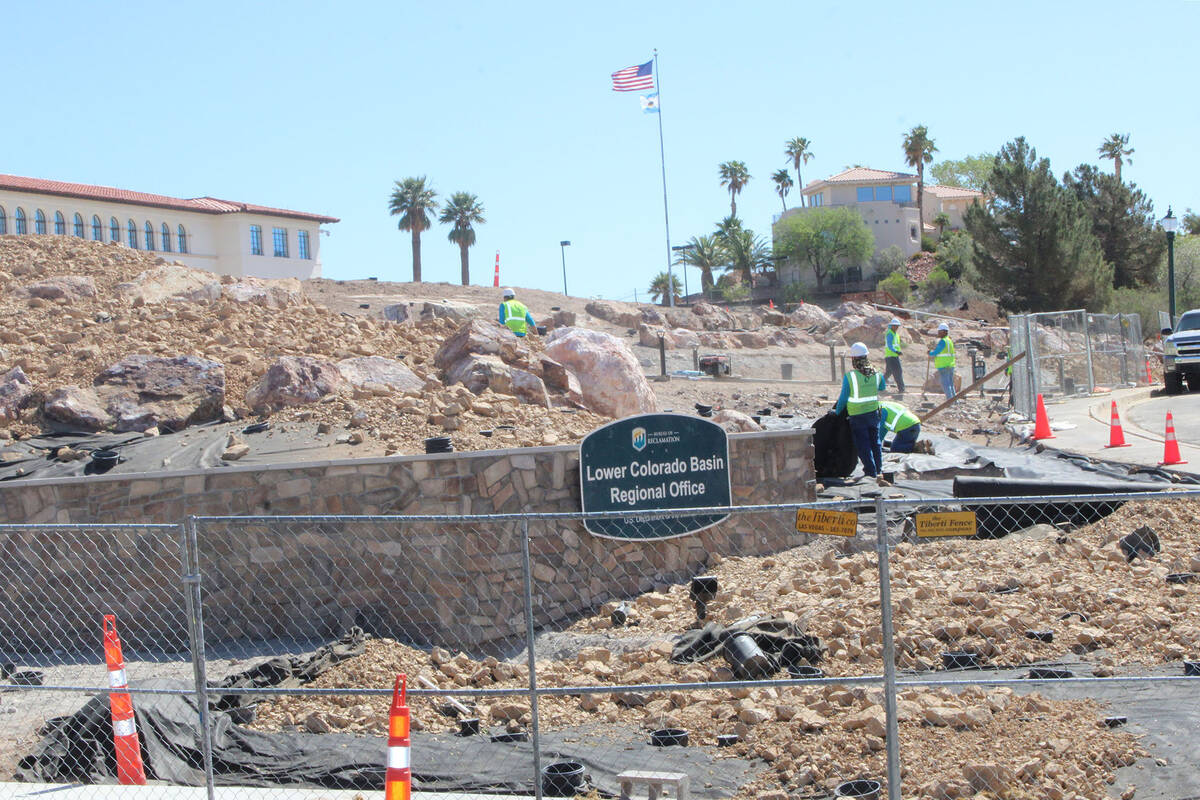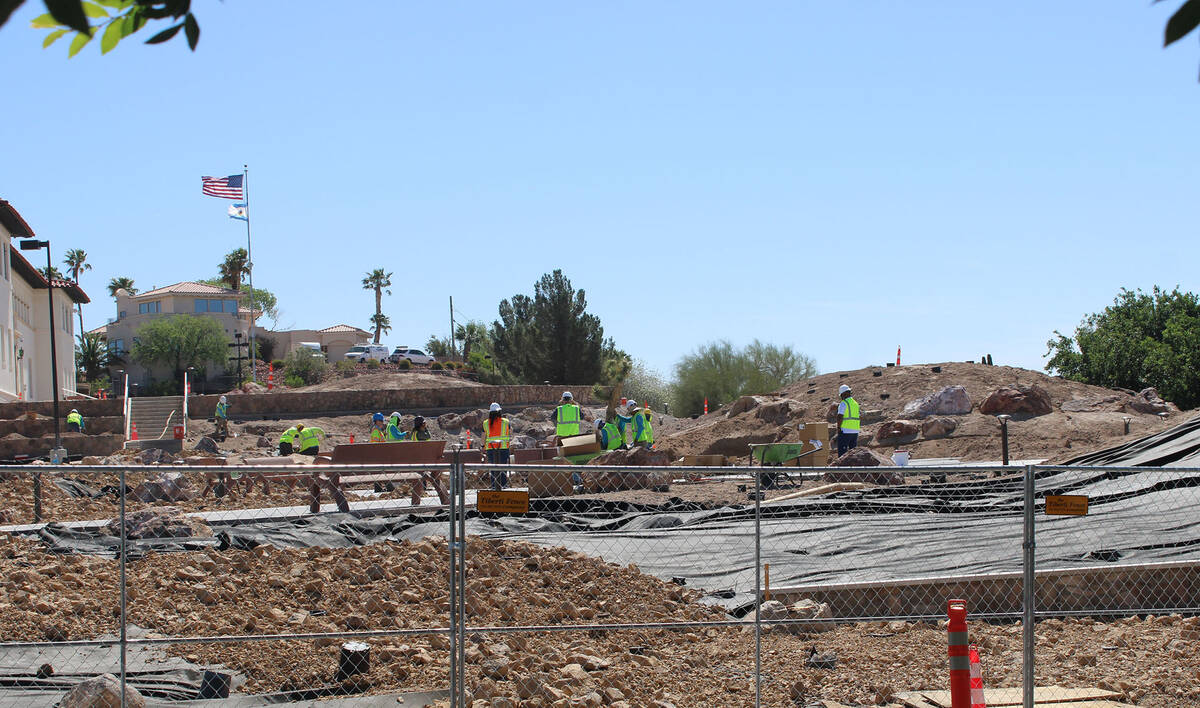BOR project nearing completion
The long-awaited transformation of the Bureau of Reclamation grounds from grass to xeriscaping is in the home stretch. But no date on its completion is known at this point.
“There’s not a lot to share right now,” a BOR spokeswoman said Friday. “While we don’t yet have a date that the site will be open to the public, we are in the final stages of the project. As the project nears completion you can see substantial changes. And as is common with federal projects, there is a process and several tasks that must be accomplished before we call it complete.
She added, “As the project nears substantial completion, residents of Boulder City will be seeing some asphalt paving, plant delivery and installation.”
The BOR’s $4.5 million project to remove grass around its Boulder City offices, which will save millions of gallons of water a year, has taken longer than had been expected.
During an interview with the Review in early August of last year, BOR officials estimated that the xeriscaping would be completed in late fall. But that wasn’t to be.
In February of this year, Michelle Helms, regional chief of the office of communications for the BOR, said the project should be done during the spring.
“We’re working on this historic site and because of that, it’s not unusual to find pipelines and other previous work that has not been documented,” she said in terms of the delay. “When that happens, we have to stop any further excavation and take steps to determine what we’re working with for the safety of the workers.”
During the excavation, Helms said crews found a significant number of unidentified and unmarked utilities. This led to additional coordination and the removal of these unusable utilities caused a delay when installing new utilities.
The project, which is funded by the Bipartisan Infrastructure Law, is replacing the lawn and associated turf surrounding the facilities with low-water usage vegetation, including drought-tolerant and native trees, shrubs, and plants.
When completed, the regional office grounds will feature a meandering path surrounded by small groves of native plants, trees, and shrubs.
Work began on the project last May and prior to that the public was invited to attend an open house to talk with BOR officials and see a conceptual design. That design has since been changed somewhat but the majority of the plan remains in place.
Prior to proceeding, the BOR worked with the Nevada State Historic Preservation Office in order to receive its analysis of the proposed work. They also worked closely with the Boulder City Historic Preservation Commission as well as the National Park Service.
Huge boulders, which were brought in, have been placed throughout the hill. This will help with erosion and runoff. In the process, the BOR will be switching from municipal water for the irrigation to raw water.
In an interview with the Review last August, both Hendrix and Lower Colorado Basin Regional Engineer Tonya Hart said that when the project of removing the grass was first announced, the news didn’t go over well with some.
“Initially, it was a mix of curiosity and approval, frustration or flat-out anger,” Hart said last year.
Hendrix added, “When we were taking out the grass and removing the trees, we were changing a view-shed that had been there for 75 years. People were asking why. Now, I think they’re seeing progress, and getting the fact we’re going to be bring something very tasteful back in.”
They also acknowledged that early on, some were concerned that the grass removal was going to extend to Wilbur Square, which is owned by the city and not the federal government. The city is, however, looking at portions of its parks and golf courses where grass can be removed to reduce water usage.

















